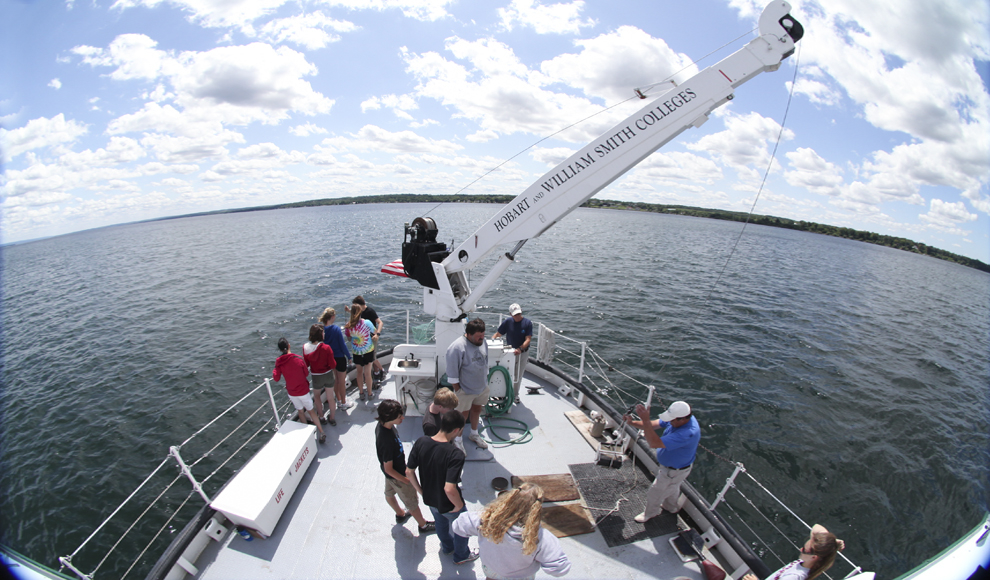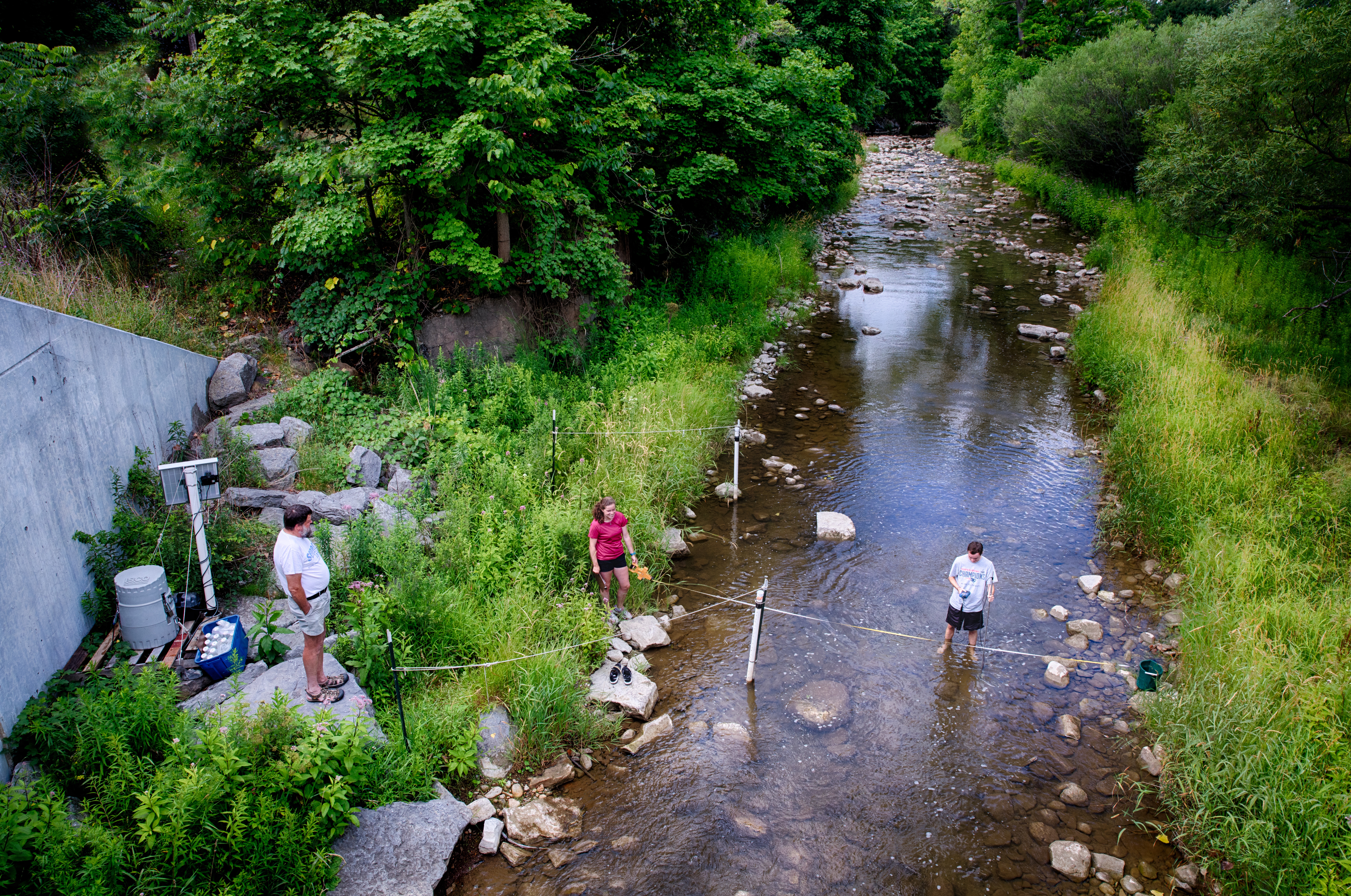
HWS News
7 July 2022 • STEM Introducing the New Aquatic Science Minor
A new minor in aquatic science capitalizes on the campus’ long history of limnologic research and leverages the Colleges’ location on Seneca Lake.
Combining courses from the natural sciences, mathematics and computer science, Hobart and William Smith recently approved an aquatic science minor. The interdisciplinary minor, to be first offered in spring 2022, will draw on existing courses in geoscience, biology, chemistry, physics, computer science, mathematics and environmental studies. This new minor is designed for students who want to better understand how water shapes the world and are interested in pursuing fields such as limnology, hydrology, freshwater or marine biology and conservation.
The breadth of courses in the minor will help broaden students’ knowledge of aquatics-related issues, says Associate Professor of Geoscience David Finkelstein. “Aquatic science is interdisciplinary by nature,” Finkelstein explains. Students will complete a research project that will give them experience to “put them right into, and much above their peers, when they’re completing a master’s thesis or a Ph.D. dissertation,” says Professor of Environmental Studies John Halfman. “They’ll already have the skills necessary to gather and analyze data, and then write it up.”
The campus’ location on the nearly 38-mile long Seneca Lake serves as the perfect field laboratory for this research. Students will use the Colleges’ existing resources such as the William Scandling research vessel, the JB Snow pontoon boat, lake monitoring buoys, and dedicated laboratory space on campus, including the Finger Lakes Institute – all opportunities for engagement that are typically found only at a few large universities.
Halfman, who will serve as the chair of the program, says he hopes the minor can grow in popularity to warrant adding a major, similar to environmental studies. When he joined the faculty in 1994, environmental studies was an individual major students could create. It has since grown to be one of the most popular majors on campus.
“We think the same thing is going to happen with aquatic science,” he says.



